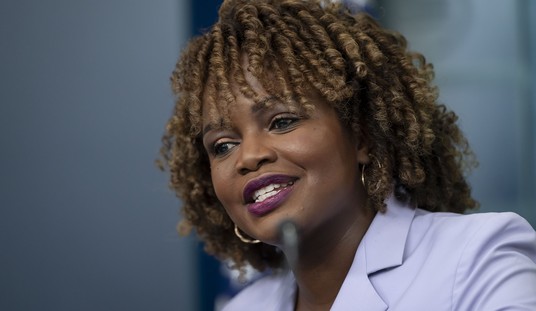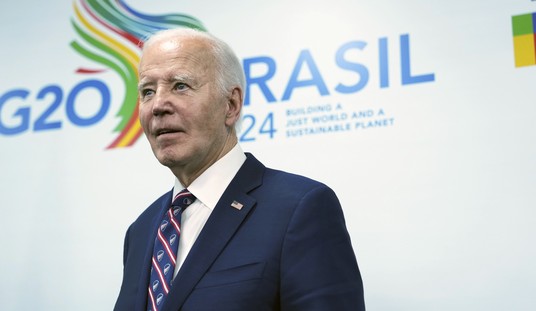Since the start of President Donald Trump's second term, however he may be doing in the polls, Democrats have been faring far worse. It keeps coming up because the polls keep showing it to be the case, no matter how much Democrats want to deny it. The approval ratings for Democrats aren't the only reason why Republicans have reason to be hopeful, though they of course cannot get too cocky. The incredibly important 2026 midterms are looming.
As Matt covered, the latest CNN poll, released on Sunday, shows that just 16 percent of respondents believe that the Democratic Party has "strong leaders," just 19 percent believe that it's the "party that can get things done," and just 25 percent see it as the "party of change." Although a plurality of respondents said "neither party" for each question, Republicans still had far more impressive numbers. By 43-40 percent, respondents chose "neither party" over Republicans on who has "strong leaders," with 32 percent saying Republicans were the party of change as opposed to the 42 percent who said "neither party," and 36 percent said that Republicans are the "party that can get things done" while 44 percent said "neither party.
A headline from CNN about these poll findings, "2 key findings on Democrats’ brand problem from the new CNN poll," is rather telling on the matter as well.
The poll results are bad enough for Democrats, but they also reveal a striking pattern. As Matt's headline, "Remember That Dismal 21 Percent Approval Rating Dems Had With Voters? Well..." calls to mind, a Quinnipiac University poll from February showed Democrats in Congress at a 21 percent approval rating with voters. That poll came out a few weeks after still another Quinnipiac University poll had bad news as well, which is that the Democratic Party was at a 57-31 unfavorable rating among voters, making for an all-time problematic rating.
And, CNN's own previous polls show bad news for Democrats. In March, a slew of polls came out showing record low ratings for Democrats. The one from CNN focused on how the Democratic Party had a favorable rating of just 29 percent.
Recommended
Those polls showed not only bad news for Democrats, which one would think might be automatically good news for Republicans if they don't screw it up, but further good news for GOP with their poll numbers, as well as other metrics, such as how the direction of the country is going.
There's an entire section, for instance, in this latest CNN write-up about how "The GOP’s edge on strong leaders," and boy is there reason for Democrats to be concerned. As the write-up, with original emphasis, pointed out:
The “strong leaders” question might be the most troublesome finding for Democrats. Only about 1 in 6 Americans said Democrats have stronger leaders than Republicans. As remarkably, only 39% of Democrats said that.
We’ve seen hints of this in previous polls. A March CNN poll found about 3 in 10 Democrats and Democratic-leaning voters couldn’t name a single leader who best reflected the party’s core values. An AP-NORC poll last month showed just 35% of Democrats said they were at least “somewhat” optimistic about the future of their party, compared with 55% of Republicans for their party.
This might not seem too surprising. We just said goodbye to a Democratic president (Joe Biden) who was a diminished figure even when he was still in office. And the Democratic nominee who replaced him (Kamala Harris) wasn’t exactly viewed as the future of the party when she took over the ticket in the 2024 race — and then lost.
But there was a time when Democrats were at a somewhat similar crossroads, and the numbers weren’t as dismal.
A CNN/Opinion Research Corporation poll asked the same question in 2006 — after John Kerry’s unsuccessful emergence as Democrats’ 2004 presidential candidate — and found a smaller 14-point advantage for Republicans. Back then, 63% of Democrats said their party had stronger leaders than Republicans — 24 points higher than today.
One reason for the difference is that the 2025 and 2006 polls asked the question in a slightly different way, partly because one was conducted entirely by phone and the other mostly online. Today’s poll gave people an explicit “neither” option, which the 2006 poll didn’t (though some people volunteered that option back then). Nearly half of Democrats in the new poll (48%) chose that option.
That’s still a remarkable finding. Combined with the 13% of Democrats who said Republicans have the stronger leaders, that’s 6 in 10 Democrats this year who don’t think their side has stronger leaders than a party led by a president whom a huge majority of them revile.
Not only did just 39 percent of the Democratic Party's own respondents say that Democrats have "strong leaders," with 48 percent saying that "neither party" does, but 13 percent even say Republicans do! Republicans have been more unified around their party and around Trump than Democrats have been. This is harkens back to how when President Joe Biden was still in office but Democrats were beginning to turn on him and his approval ratings among his own fellow Democrats reflected that. Going back to this question, 85 percent of Republicans say that their party is the one with "strong leaders," while 12 percent say "neither party" and just 3 percent say the Democratic Party.
The excerpt above was right in emphasizing the 39 percent Democrats finding, as well as how the numbers are "dismal" and that this is "still a remarkable finding."
There's certainly signs for the midterms, as the CNN write-up on this latest poll mentioned early on:
The poll, which was released Sunday, asked a battery of questions about how people view both parties. Perhaps most striking was that people were more likely to view the Republicans than Democrats as the party with strong leaders (40% to 16%) and even the “party of change” (32% to 25%).
Neither party won close to a majority in either category. But the former is notable because there is such a gulf between the two parties. And the latter is notable because the party that’s out of power is usually viewed as the party of change. Not this time.
As we covered at the time, an internal poll from the National Republican Congressional Committee (NRCC) put out in late April revealed that House Republicans are in a better position for the 2026 midterms than they were at this point in 2017 for the 2018 midterms. Time will tell if that remains the case.
With far-left leaders such as Rep. Jasmine Crockett (D-TX), who is a vice ranking member of the House Oversight Committee and has already laid out plans for going after Elon Musk with a subpoena if she is to become the chairwoman, as well as Rep. Alexandria Ocasio-Cortez (D-NY) looking to be in charge, the radical shift could spell doom for the Democratic Party in a country where every state, even and including Washington state, shifted to the right last year.
Further, the poll may raise concerns about Democrats being motivated enough to turn out if they don't have much faith in the party. As we've covered before, another theme of these polls is the disarray Democrats find themselves in, especially with how their voters feel about Trump.
























